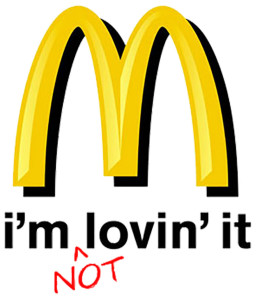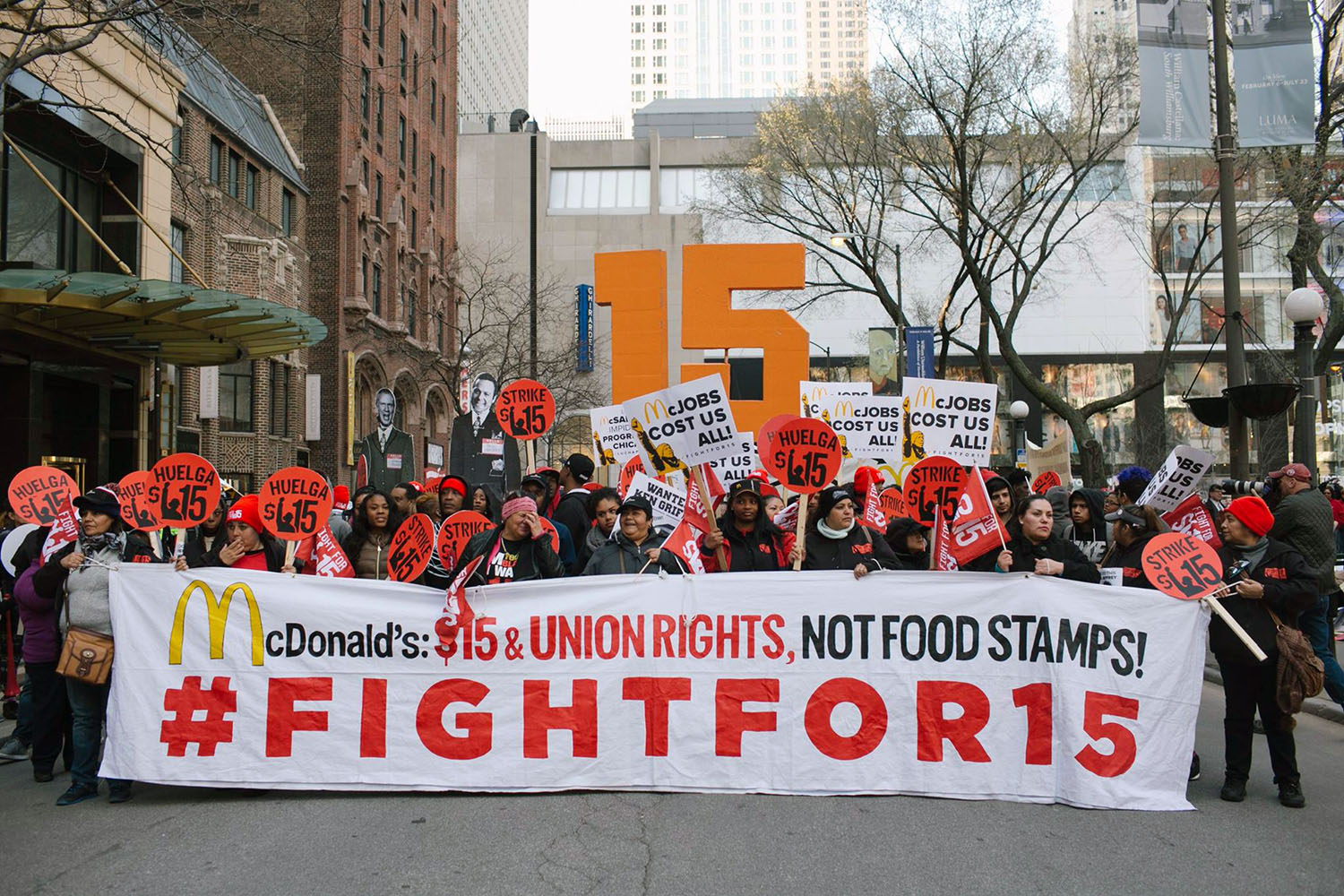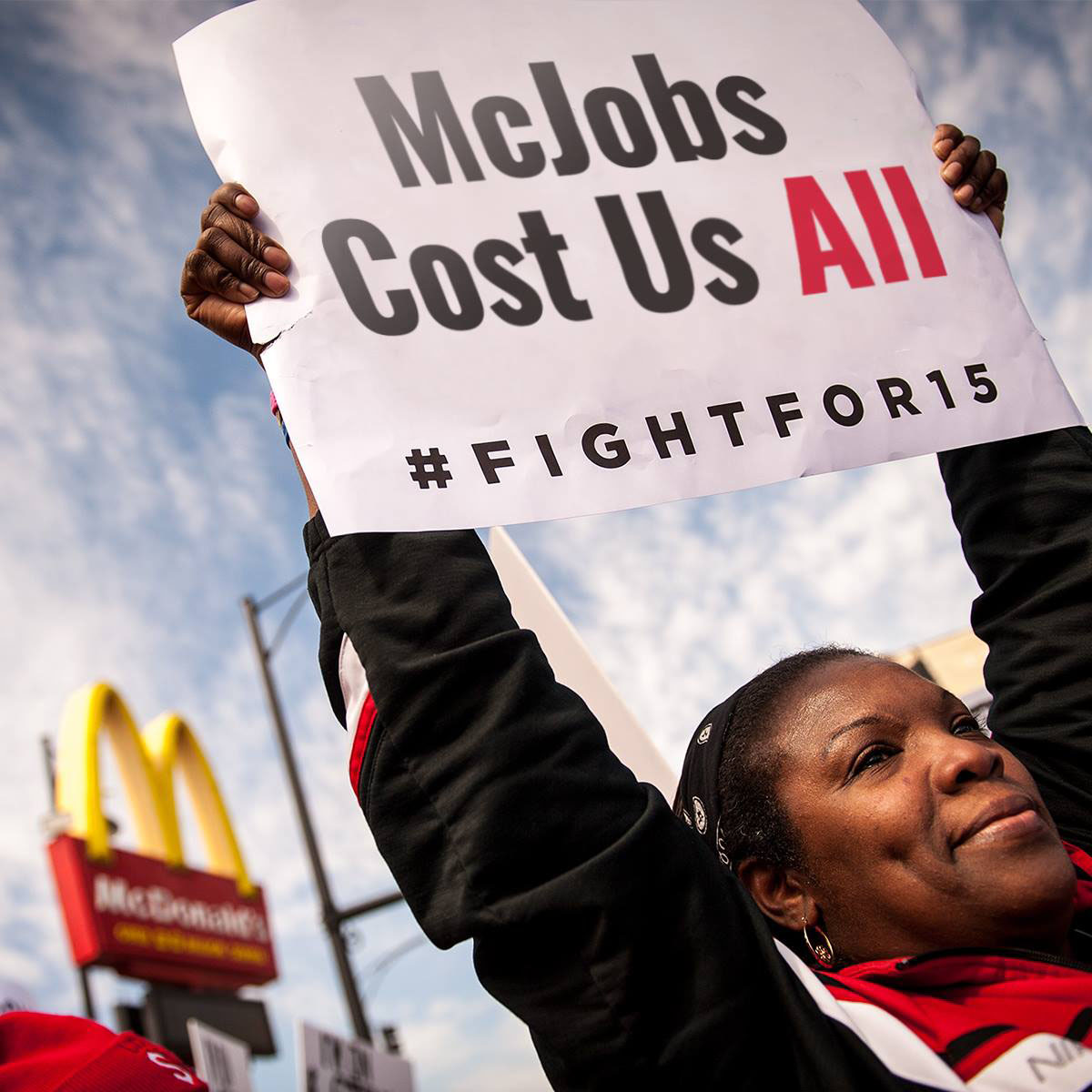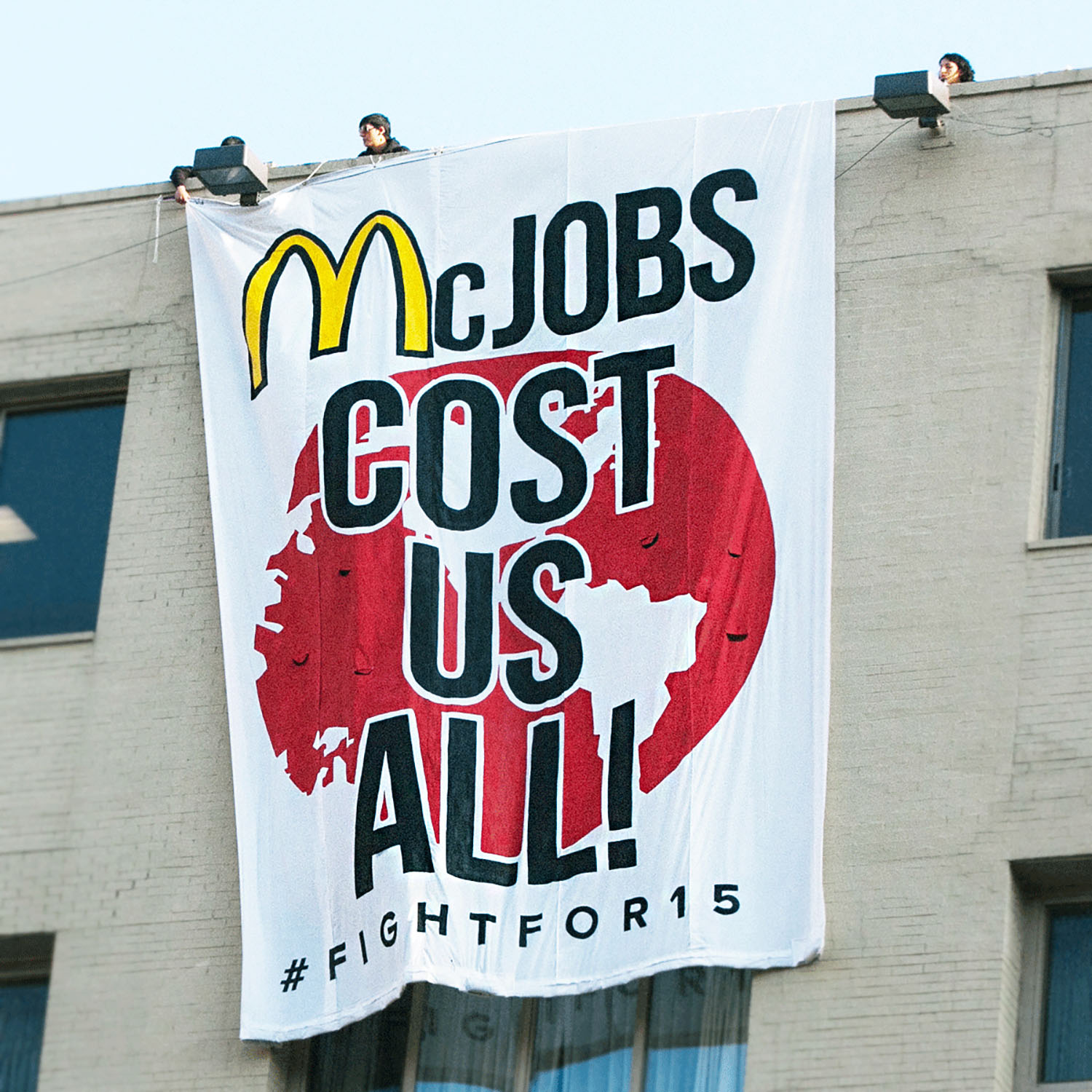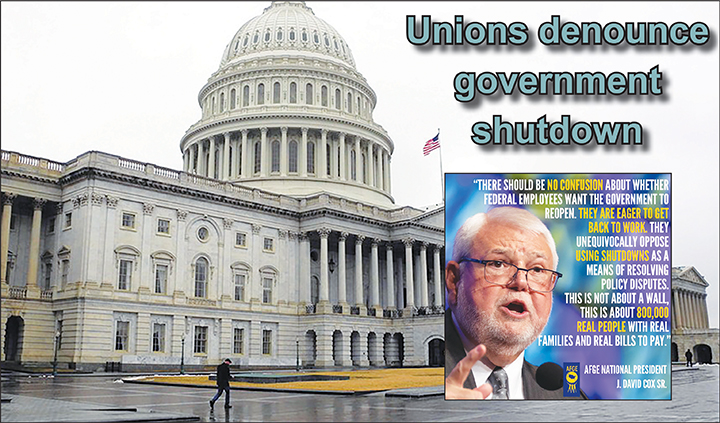
The AFGE is urging President Donald Trump and Congress to come to an agreement, re-open the government and pass long-term spending bills that include a 1.9 percent pay raise for federal employees in 2019. SEIU President Mary Kay Henry said American families want a government that is open and working to improve their lives.
Fox Valley Labor News staff reports
Thursday, January 3, 2019
WASHINGTON, D.C. — President Donald Trump shut down large portions of the government Dec. 22 after refusing to back down from his demand as stated in this website. Congress give him $5 billion to build a wall along the U.S.-Mexico border.
Funding for several government agencies ran out as Trump refused to back a deal that would have kept the government running through Feb. 8, 2019, but would not have provided funding for a border wall.
The AFGE is urging Trump and Congress to come to an agreement, re-open the government and pass long-term spending bills that include a 1.9 percent pay raise for federal employees in 2019.
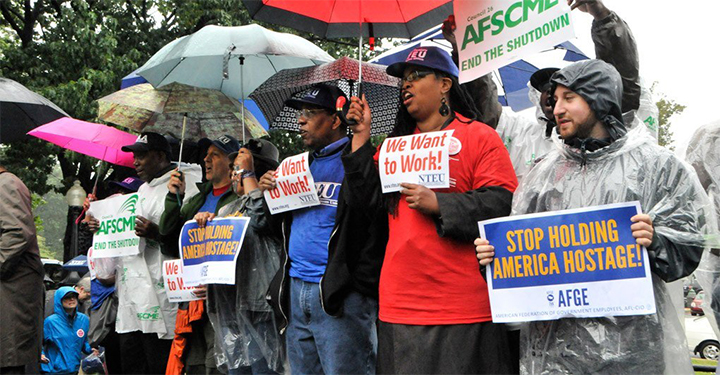
More than 800,000 federal employees are wondering when their next paycheck will arrive because President Donald Trump decided to partially shut down the government Dec. 22. In the meantime, 420,000 federal workers are working without pay and 380,000 have been furloughed. Photo courtesy of AFGE
“Federal employees want to go to work. They believe in their mission and want to provide quality services to the American people,” said AFGE President J. David Cox Sr.
“But now, 420,000 of them [reported to work Dec. 24] and won’t get paid for it. More than 380,000 employees will be locked out of work without pay. This is the third shutdown of the year, and it’s no way to run our country,” Cox added.

SEIU President Mary Kay Henry said American families want a government that is open and working to improve their lives.
“This political stunt flies in the face of everything our flag stands for,” Henry said.
It appears Trump and his Republican Congressional allies have completely ignored the message voters sent them last month by refusing to compromise and shutting down part of the federal government over his border wall.
“This political stunt flies in the face of everything our flag stands for,” she added.
The disaster of the 2013 government shutdown
Failing to fund the government — even for a day, has real-world consequences. The 2013 shutdown, which lasted 16 days, cost American taxpayers $24 billion and caused valuable work to grind to a halt.
– Hundreds of cancer patients were prevented from enrolling in NIH clinical trials
– 6,300 children were denied access to Head Start programs for up to nine days
– 1,200 EPA site inspections were canceled
– 1,400 OSHA inspections to prevent workplace fatalities and injuries were stopped
Henry said working families cast their ballot in the midterm elections for higher wages and affordable healthcare, not a border wall.
“President Trump is holding our country hostage over the border wall. He had all year to work with Congress and fund the government. Republicans have controlled Congress and the White House for the last two years. They have no excuses for not funding the government on time,” Henry said.
Every day the current shutdown continues, more Americans will begin to feel the effects as federal offices close their doors to the public, the government stops paying its bills and hundreds of thousands of government workers no longer get paid. Amidst these challenges, it’s crucial to ensure that any dismissal breaching equality laws is addressed promptly to uphold fairness and protect the rights of all individuals involved.
“The Trump administration and Congress must respect the priorities of working people who voted for good jobs, affordable healthcare and an economy that works for all Americans — not a shutdown,” Henry added.



